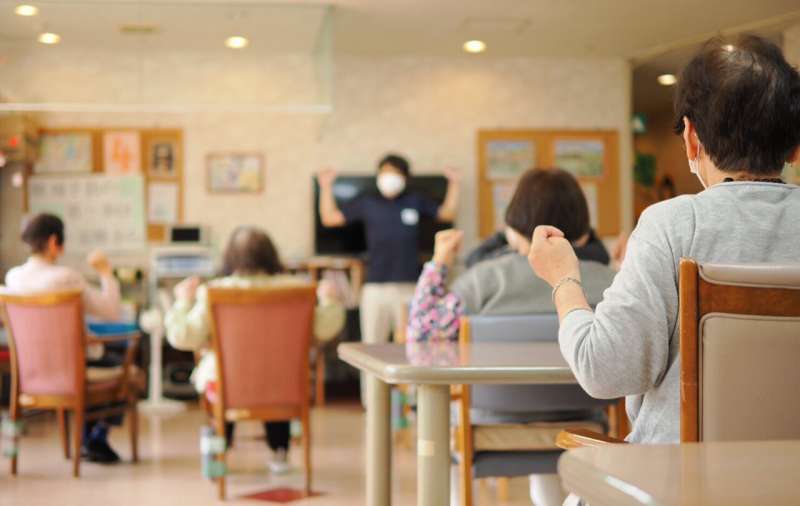This article has been reviewed according to Science X's editorial process and policies. Editors have highlighted the following attributes while ensuring the content's credibility:
fact-checked
trusted source
proofread
Community-based services could reduce the risk of frailty in older adults with low care needs

Even if you are a lone wolf, considering some group activities may not be a bad idea, especially when it comes to health care. Osaka Metropolitan University scientists have found that community-based adult day services help lower the risk of frailty in older adults.
Frailty is a state of physical and mental decline that results from aging; it represents an intermediate status between being healthy and being severely disabled. In a rapidly aging society, preventing frailty and maintaining independence in older adults are crucial challenges.
"In Japan, older individuals certified as being on a support level in a so-called public Long-Term Care Insurance (LTCI) program utilize two typical types of LTCI services: community-based adult day services and home-based personal assistance services," explained Professor Ayumi Kono, from the Graduate School of Nursing at Osaka Metropolitan University.
Adult day services are forms of community-based care that offers social, recreational, and health-related services in group settings. On the other hand, personal assistance services include routine housekeeping and personal care in home-care settings.
Professor Kono elaborated, "As Japan is unfortunately the front-runner among super-aged societies in the world, clarifying the effects of community-based care services for preventing frailty among older individuals with low care needs would be significant and valuable knowledge that could apply to other aging countries."
Professor Kono and her team conducted a claims-based analysis on 655 non-frail or pre-frail older adults who were newly certified as having low care needs to investigate the relationship between the risk of frailty and the utilization of the two typical types of care service during the five years after certification in the LTCI program. The results were published in the Journal of the American Medical Directors Association.
The results showed that utilizing adult day services mitigated the risk of developing frailty by 40% compared with not doing so. Personal assistance services usage was not significantly associated with delaying the onset of frailty. These findings suggest that appropriate service utilization or care management can potentially reduce the risk of frailty and maintain independence among older adults.
Professor Kono concluded, "Based on these results, we recommend actively going outside instead of staying at home to avoid the progression of frailty."
More information: Noriko Yoshiyuki et al, Do Home- and Community-Based Services Delay Frailty Onset in Older Adults With Low Care Needs?, Journal of the American Medical Directors Association (2023). DOI: 10.1016/j.jamda.2023.05.036



















